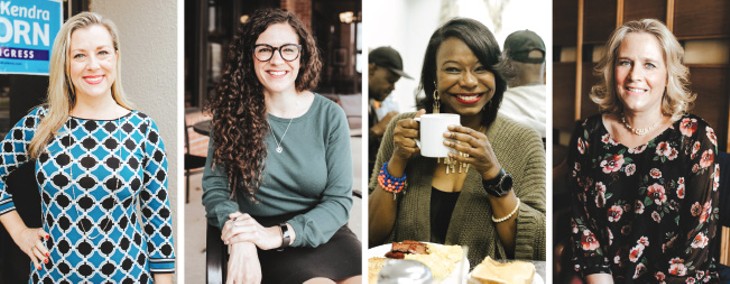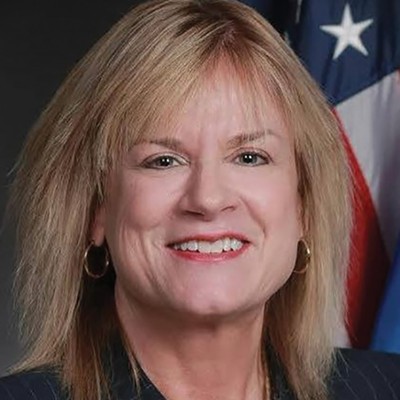Results from the Nov. 6 midterm elections were a cause for celebration for many as an unprecedented amount of women emerged triumphant nationally.
History was made in several states, including Tennessee, where voters elected their first woman to the United States Senate; Texas, where voters chose Veronica Escobar and Sylvia Garcia as the first Latina women to represent the state in U.S. Congress; and in Massachusetts, whose voters elected the state’s first black woman to Congress.
On the national front, Debra Haaland, from New Mexico, became the first Native American woman elected to U.S. Congress, Ilahn Omar from Minnesota and Rashida Tlaib from Michigan became the first Muslim women elected to Congress, Sharice Davids from Kansas became the first openly lesbian and Native American woman elected to Congress and 29-year-old Alexandria Ocasio-Cortez from New York became the youngest woman ever elected to Congress.
South Dakota elected Republican Kristi Noem as the state’s first female governor, and for the first time in Oklahoma’s history, the state’s citizens elected its first female Democrat to represent the state in U.S. Congress.
Kendra Horn, 42, defeated incumbent Steve Russell by winning 50.7 percent of votes to represent U.S. House District 5 beginning in January. She attributes her win and the win of her sister candidates to voters’ desire for change.
“We’ve seen the desire for change on a national level and in Oklahoma,” Horn said. “Women rose to the occasion, offered common-sense solutions and won based on those solutions.”
Women in action
Carrie Blumert, who won the election for District 1’s Oklahoma County Commissioner, said women deciding to run was a primary reason so many were elected in Oklahoma on Tuesday.“It was really the perfect storm,” she said. “I think many of us had never even thought of running for office before. Once we felt the desire to run and established the confidence to do so, that was the first step towards success. The women’s marches helped many of us decide to run for office. In Oklahoma, the teacher walkout added fuel to the fire.”
In January, Blumert will replace Willa Johnson, who is retiring as the only female elected official in Oklahoma County government.
If the teacher walkout in April added fuel to the fire, Carrie Hicks, who was elected state senator for District 40, was burning up by election night.
A fourth-grade Deer Creek public school science and math teacher, Hicks visited a state congressman months before the teacher walkout with the hope of representing classrooms across the state and their need for additional funding.
“He basically told me I was lying. He told me to go back to my classroom and leave politics to the guys in office. It was demeaning, demoralizing and humiliating,” Hicks said. “But pretty soon, I’ll get the chance to work with him and do what he should have done then.”
Once sworn into office, Hicks said she will fight to reduce classroom sizes, increase school funding and create incentives that will keep qualified teachers in Oklahoma.
Strengthening education will also be a primary focus for Nicole Miller, who won her campaign to represent District 82 in Oklahoma’s House of Representatives.
Miller, one of the few women who ran as a Republican in this year’s elections, said she believes women also won because of their willingness to be vulnerable.
“We’ve seen the desire for change on a national level and in Oklahoma. Women rose to the occasion, offered common-sense solutions and won based on those solutions.” — Kendra Horn
tweet this
“I think voters really respond to a political candidate who proves to be authentic,” she said. “I never thought I’d run for office, so doing so wasn’t a part of some kind of political agenda for me.”
Miller decided to run for office when her family had the opportunity to decide where they wanted to live permanently after Miller’s husband, Doug, a United States Air Force lieutenant, retired. When the Texas native moved to Oklahoma seven years ago, her dream became to stay in the Sooner state so long as she saw changes at the capital.
“We come in last in so many areas,” she said. “But this state has a lot of potential.”
For the first time in her life, Miller said, instead of asking herself, “Why me?” she asked herself, “Why not me?”
In 2005, when Miller was 35 years old and pregnant with her second child and her husband was deployed oversees, she was diagnosed with breast cancer. It’s a story of heartache and strength she openly shares with her constituents.
“You might not find a doctor’s diagnosis on the campaign websites of most male politicians,” Miller said. “But I don’t think there’s anything to be ashamed of. Politicians are not perfect, and the more we’re willing to share our struggles and our hardships with the people we represent, the more likely they will be to trust and relate to us.”
Remaining relatable is a top priority for 38-year-old radio personality Nikki Nice, who won a seat on Oklahoma City Council. Nice will represent Ward 7 beginning Monday. She said a woman’s ability to be honest and strong is what is appealing to voters in today’s political climate.
“There’s a lot of heartache right now,” Nice said. “I think people are looking for a political candidate who can show that they care about the people they represent and not just about remaining in office.”
Promises fulfilled
Whether its on their current agenda or not, Horn said the women elected on Nov. 6 will likely remain in office. Their victories, she said, will only cause more women to run for office in future elections.A 2012 study published in Harvard’s Business Review showed that in the United States, women are considered to be more effective leaders than their male counterparts.
Female candidates will deliver on their promises, Horn said, and will inspire more women to run successful campaigns for office.
“Studies have shown that women in office pass more legislation and are more likely to compromise and negotiate in their efforts to come to agreements that have positive outcomes,” she said.












